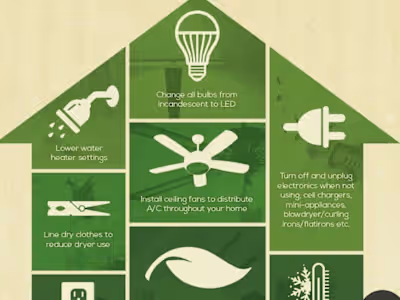Dissertation
An analysis of environmental regulations for the mediation of plastic pollution in Mauritius
Chapter 1: Introduction
1.1 Introduction
Plastic pollution is currently one of the most pressing global environmental problems as a result of the ever-increasing production of plastic products and unsustainable waste management practices (Parker, 2021). Plastic is a wonderful material that is used in almost every object that humans produce due to its long lifecycle and low cost of production. Plastic becomes waste as a result of irrational production, improper landfill disposal, and insufficient recycling management, thus posing serious ecological and socio-economic challenges. As far as the statistics of plastic pollution are concerned, a big chunk of it emanates from microplastics (Yonature, 2021). Worldwide plastic production has so far exceeded nearly 245 times from 1950 to 2019, and if the trend persists, global plastic yield is predicted to reach a phenomenal figure of 34 billion metric tonnes by 2050. Every year, approximately 300 million metric tonnes of plastic waste are generated, and to make things worse, it can be noted that annually, approximately 11 million metric tonnes of plastic waste end up in the world's oceans. If current plastic production and disposal trends persist, our oceans will encompass more plastic than marine life by 2050. Regardless of the different policy measures in place, it is dreadful to see evidence that only 9% of waste is sent for reuse, whilst 12% is sent for open burning, and the remaining 79% is gathered in dumpsites or the natural environment (Foolmaun, R.K. et al, 2022).
There are various serious threats posed by plastic pollution, which originates from both land-based and ocean-based sources. Plastic pollution has a negative impact on biodiversity, humans, and key economic sectors, drawing increased attention to the issue. It has been recognised as a serious ecological crisis as a direct consequence of the bioavailability of microplastics and nanoplastics in both aquatic and terrestrial food webs (Foolmaun, R.K. et al, 2022). As a result of the challenges, various regulations have emerged globally by international, regional, and national governments to combat plastic pollution. Between 2000 and 2019, at least 28 policies to reduce plastic pollution were established at the international level. Among these policies are the United Nations Convention on the Law of the Sea (UNCLOS), the MARPOL Convention, the London Convention, and the Basel Convention. Further, as from 2019, at least 39 policy documents had been adopted at the regional level, primarily in Europe. At the national level, the government's responses have increased, with a focus on plastics bans and levies as well as waste management strategies (Schmaltz et al, 2020). Yet, the government's consideration of the impacts of plastic, especially in the oceans, has led to the implementation of strict rules and standards, though the effectiveness of the legislation is unknown and presently there is no convention that entirely tackles the issue of marine plastic (Da Costa, J.P et al, 2020).
Mauritius, a small developing island state (SIDS) in the Western Indian Ocean with a total population of around 1.3 million, is not spared from the serious ecological and socio- economic impacts of plastic pollution. Plastic has been found to pollute splendid scenery, waterways, open spaces, public beaches, coastal waters, and distant lands. Based on a 2018 study conducted by the Mauritius Oceanography Institute, coastal water contained significantly more plastic particles than the Mauritian lagoon. Furthermore, plastics were frequently reported to block drains, resulting in flooding events, causing significant economic loss (Foolmaun, R.K. et al, 2022).
The Mauritian government, like many others around the world, is concerned about the effects of plastic pollution and has enacted a number of regulations to combat it. However, the regulations promulgated are still not effective in reducing the amount of plastic waste generated and controlling plastic pollution and its adverse effects. Therefore, a mixed method of qualitative and quantitative approaches is well suited for analysing the regulations. The aim of the current study is to assess the effectiveness and possible reasons for failure of the regulations at the various stages of the plastic lifecycle. At last, the data collected will be used to enforce the regulations in place to curb plastic pollution and its impact on social, economic, and environmental sectors in Mauritius, as well as to recommend possible solutions to the current constraints.
The literature review provides a brief overview of the following:
solid waste management as the primary source of plastic pollution,
plastic waste generation,
plastic composition,
plastic waste disposal,
plastic pollution sources and impacts,
sustainable development goals addressing plastic pollution,
the lifecycle of plastic,
worldwide regulations addressing plastic pollution at the international, regional, and local levels,
and the regulations adopted in Mauritius.
The study begins with chapter 1 (introduction), which consists of a general introduction to the research and the aims and objectives; then moves on to chapter 2 (literature review), which has the above contents; chapter 3 (methodology), which contains the methods, analysis, and tools to be used; chapter 4 (results), which are mainly the data collected to be illustrated on graphs, charts, and tables; chapter 5 (discussion), which analyses the results obtained; and chapter 6 (conclusion and recommendations).
1.2 Aim and objectives
Aim of study
To identify and analyse environmental legislative and non-legislative measures at various stages of the plastics life cycle, including their specific purposes and effectiveness in terms of plastic pollution control.
Specific objectives of study
The objectives are as follows:
To examine whether the adopted legislative and non-legislative measures are successful or not;
To significantly reduce plastic waste entering the environment;
To investigate the possible reasons for the success and failure of the past legislative and non-legislative measures;
To discuss the prospective legislative framework for the prohibition of single-use plastics by 2030
Like this project
Posted Oct 23, 2023
Finecombing a dissertation on plastic pollution under the aegis of the University of Mauritius





